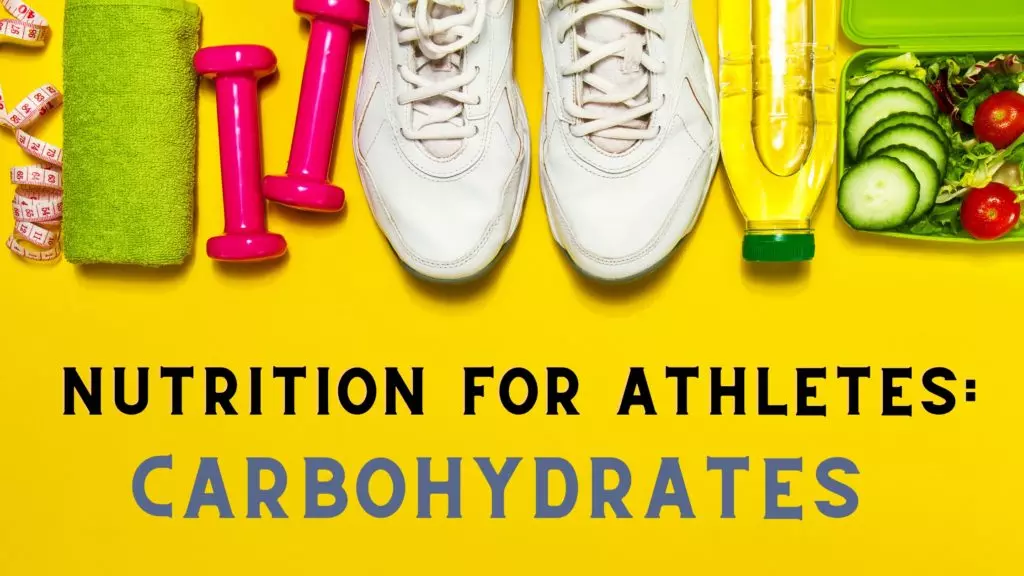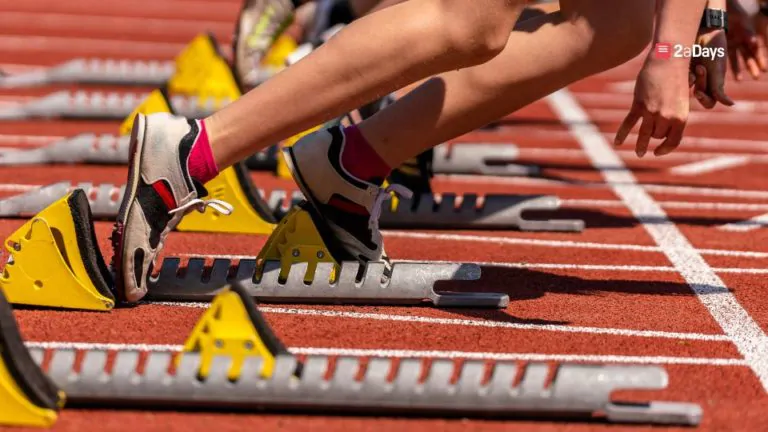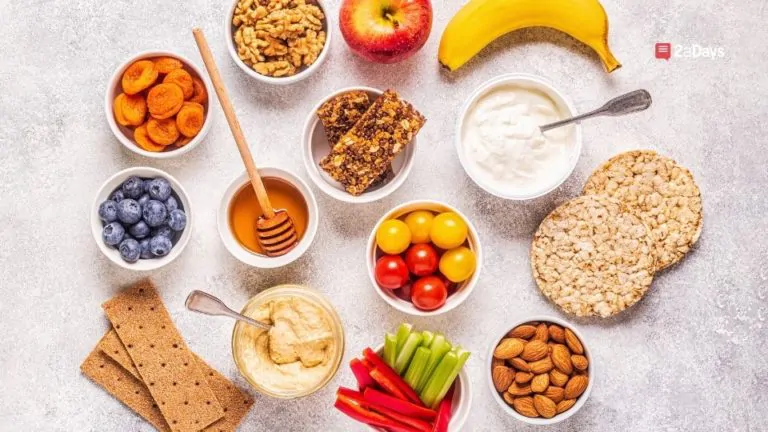Carbohydrates are the hottest topic when discussing nutrition and macronutrients. Over the years, carbs have been given a bad rap as a macronutrient that needs to be limited. However, this is false, especially for student-athletes, who put their bodies through the ringer for their sport.
Ask yourself: Do you know what carbohydrates are? Do you know why they are important? Do you know how to make the best use of carbohydrates to help you reach your goals?
Related: Fueling Your Body for Performance
What Are Carbohydrates?
Carbohydrates are one of the 3 main macronutrients needed by the body. Carbs are sugar molecules, found in foods and drinks, that the body breaks down and turns into glucose (aka blood sugar). Glucose is then used as the MAIN source of energy for proper functioning of the body's cells, tissues, and organs. It even contributes to mood regulation.
The body typically uses the glucose almost immediately, but occasionally, there is some left over. Any unused glucose is stored within the liver and muscles as glycogen for the body to access and use later.
Related: Nutrition for Athletes: Overview
It's Not That Simple Though, Sometimes it's Complex
Carbs are split into simple and complex carbohydrates. Simple carbohydrates are carbs in their most simple form: one or two sugar molecules linked together. Simple carbs have little to no nutritional value, but they provide short-term energy. They are easier for the body to process and just as easy for the body to use. The ability to quickly process simple carbs causes a temporary spike in blood sugar levels. This can be felt after consuming sugary foods or drinks that causes a burst of energy and then the infamous “sugar crash.”
Simple carbs are typically found in sugary foods, both naturally occurring (fruits, vegetables, and milk) and the added type (candy, soda, ice cream, and juices). It can also be found in carb sources that have been heavily processed (white bread and white rice) with the fiber stripped out.
The second type of carbohydrate is complex carbs, which have more than two sugar groups linked together. Complex carbs come in two forms: fiber and starch sources. The longer chain of sugar groups makes starches a longer-term energy source. With a slower digestion rate, they leave the body feeling satiated for a longer period and deliver a continuous stream of energy. These foods are rich in nutrients (vitamins and minerals) providing more for the body than just fuel.
Fiber-rich complex carbs are not able to be broken down by the body. While not providing energy like starch-rich complex carbs, they are necessary for aiding and stimulating digestion, and they help you feel full. They also help the body regulate the blood sugars and not use the glucose too quickly.
Related: 2 Satisfying Snacks for Athletes on the Go
Carbohydrate Sources
Simple Carbs
- Fruits/canned fruits
- Milk
- Juice
- Soda
- Candy
- Pastries
- Ice cream
- Sweeteners (agave nectar, cane/corn syrup, dextrose/fructose/sucrose, honey, molasses)
- Sports drinks
- White bread/white rice
- Chips
- Fried foods
Complex Carbs:
- Beans and legumes (black beans, chickpeas, lentils, kidney beans)
- Some fruits (apples, berries, melons) and vegetables
- Whole-grain products (brown rice, oatmeal, whole-wheat bread, whole-wheat pasta)
- Potatoes
- Nuts & seeds
Why Student-Athletes Need Carbohydrates: Athletics and Academics
Carbohydrate-rich diets help both endurance and sporadic high-intensity performance. They are vital for athletes to perform at the highest levels in practice, training, and competition.
While complex carbohydrates provide the energy needed during these events, simple carbohydrates are useful after events to quickly replenish the glucose. The simple carbs will delay the onset of fatigue and help the body recover better and more quickly after a high-intensity event.
Carbohydrates assist in muscle gains and body composition in addition to helping with recovery. When the body does not have enough glucose stored, it will utilize fats or muscle proteins to get the energy required. This hinders the muscle proteins from repairing and rebuilding muscle tissues for maximum muscle gains. If this occurs, the body will begin to lose some of the muscle mass required to perform at the highest level. While the necessary amount of muscle gains varies from sport to sport and athlete to athlete, it is important to minimize muscle mass reduction and maximize muscle growth.
Carbohydrates not only provide energy to the body, but to the brain as well. This is important when making quick decisions on the field/court but also when working towards academic goals. When lacking carbohydrate stores (glycogen), the brain cannot function at its highest level. This causes the student-athlete to feel foggy and forgetful, affecting them academically and athletically.
How Many Carbohydrates Do You Need?
The amount of carbohydrates a student-athlete needs depends on several factors:
1. Sport (endurance vs intermittent high intensity)
2. Training level
3. Length of event
4. Genetics
On average a student-athlete should aim to consume 3-12 grams of carbohydrates per kilogram (2.2 lbs) of bodyweight each day. The exact number will vary based on the above-mentioned factors and on a day-by-day basis. A lower number of carbs will be needed on days where the student-athlete is less active or not preparing for a game. On days where the student-athlete has a higher intensity training, practice, game, or leading up to a game, a higher number of carbs should be consumed to build up glucose stores.
The following equation will help determine the amount of carbohydrates a student-athlete needs to intake:
Weight in kg x Carbohydrates intake in g/kg = daily carbohydrate intake
*to find your weight in kgs, divide bodyweight in lbs/2.2
When to Eat Carbs
Pre-training or pre-game meals are necessary to stay satiated and maintain optimal energy levels.
Afternoon session
When training occurs later in the day, a student-athlete should aim to consume approximately 3-4 grams per kg of bodyweight 3-4 hours before. This will give the body plenty of time to begin digesting the food and start delivering and storing energy. By consuming the carbohydrates 3-4 hours ahead of time, the student-athlete is also reducing the risk of stomach issues.
Morning session
If the training sessions occur first thing in the morning, student-athletes should aim to eat an adequate amount of carbohydrates the evening before, then consume about 30 grams of carbohydrates 5-30 minutes before training to maintain blood glucose levels.
Pro tip: Make sure to eat carbs that get along with your stomach. These may come in the form of sports drinks or quick digesting fruits that are higher in water content.
In most cases, you should not eat a high-carb meal within an hour of an event as this could cause stomach issues.
All-Day Events
During all-day events, you need to continuously restore your glucose. When events or games occur with an hour or less in between, you should focus on intaking carbohydrates via liquid form or fruits that have a higher water content (watermelon, applesauce, or bananas).
When you have 2-3 hours between events, you can eat more carbs and some protein because you will have more time to digest before the next event. We suggest granola bars, whole grain toast/bread with fruit, and plenty of fluids to restore electrolytes.
When events have 4 or more hours in between, you can eat a simple meal composed mostly of carbs, such as a turkey sandwich on whole grain bread, yogurt, and some fruit.
During longer events
When training or an event takes longer than an hour, you will want to consume carbs throughout the event to keep your energy levels from depleting too quickly. The suggested carbs can be anything, but athletes typically choose sports drinks and gels.
Post-Session
Finally, after training or an event, the student-athlete will want to consume a carb-focused snack to start replenishing glucose stores. This will aid in the recovery process and minimize fatigue. The suggested amount of carbs to consume post-workout is 0.5 -1 gram of carbs per kg of bodyweight.
It is important to remember that all figures mentioned in this article are based on research and suggestions. What works for one student-athlete does not always work for another, so make sure to take the time to know and understand your body and its needs. This will help you to find the optimal carb intake and timing for you.
* Originally published on November 10, 2021, by Rebecca Lutz







